Patreon MUSICARTA Premium
The Musicarta Hanon
- Patreon Home Page -
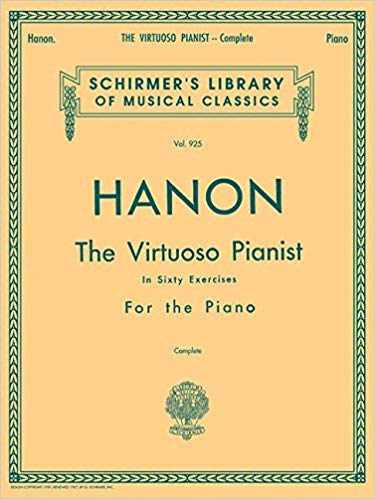
Anybody hoping to become or remain a proficient keyboard player needs daily technical practice to develop and maintain their skills.
The Hanon finger exercises have been a staple of piano teaching for a century and a half - and with good reason. They are easy to understand and play, and train the fingers as well as warming the hands up nicely for repertoire practice and performance.
The Musicarta Hanon offers a video edition of these famous and useful exercises, with ten sets of variations to keep your practicing lively and progressive.
If you'd like to hear more about the The Musicarta Hanon, click here to open the introductory page on Musicarta - or read the next section to plan your practice strategy and get started.
Your Hanon study programme
Every experienced musician will tell you that daily practice is the only way to be able to play the music you want to hear! The Hanon exercises have served this purpose for decades.
The first Hanon exercise sounds like this.
A perfect, simple opportunity to drill your fingers in playing what you want, when you want it!
So, to start, all you will do is get acquainted with the Hanon exercises, numbers 1 through 30, starting on this page.
But wait...!!
Those pages also offer some variations, so that experienced Hanonites can still use them as a cue for more advanced technical practice. IGNORE THOSE FOR THE TIME BEING!
Click through to the first page
of this series here.
Hanon Combined Patterns
Once you can play the basic Hanon exercises reasonably fluidly, challenge your self to combine pairs of exercises by playing alternating bars of each.
Here's Exercises One and Two combined in this way.
The challenge is to hold in your attention 'where you are', and play the right pattern without hesitation.
Click through to the first page
of this series here.
Hanon in Six-Eight
Vary your practice with Hanon a light, tripping six-eight rhythm. Here's an example.
Click through to the first page
of this series here.
Hanon in Sixths and Tenths
Playing the exercises in sixths (with the left hand starting on E) and tenths (right hand, ditto) feels like 'getting music for free'!
Here's Hanon No.5 in tenths.
Playing in sixths and tenths makes it more obvious if your hands are not playing perfectly together - but, like all practicing, listening carefully is essential.
Click through to the first page
of this series here.
You can play the six-eight versions in sixths and tenths, too.
Click through to the first page
of this series here.
Hanon with Held Thumbs
The right hand in popular music keyboard styles often plays both chord tones (or a chord tone) in the lower/thumb side, and melody notes with the little finger side - both at the same time.
You start practicing this crucial but challenging technique with just the right hand.
Click through to the first page
of this series here.
The left can also join in. Playing like this makes you very aware of how long notes last - something you're responsible for, of course!
Click through to the first page
of this series here.
Rhythmic Variations - First Series
These rhythmic patterns in six eight will 'crisp up' your playing and offer an excellent daily opportunity to practice syncopated finger patterns.
Complex patterns are rehearsed in a static five-finger position first before being 'unleashed' on the Hanon exercises themselves.
Musicarta doesn't just drop you in at the deep end though. Here's how you build up the syncopation.
Nobody gets left behind!
Click through to the first page
of this series here.
Rhythmic Variations - Second Series
The second series offers a selection of rhythmic variations in four-four. Here's one practice-speed example.
Click through to the first page
of this series here.
Hanon Canon
Knowing the Hanon exercises well provides an opportunity to develop critical keyboard skills other than simple dexterity. This mini-series applies the contrapuntal 'canon' construction to the familiar Hanon exercises.
Here's the familiar Hanon No.1 with the left hand coming in a quaver late.
Click through to the first page
of this series here.
"Mind the Gap"
The original Hanon exercises for the most part follow the shape of the (right) hand and place the principal 'skip' (third) between the thumb and the index finger.
Varying the Hanon No.1 pattern by moving the skip to between RH fingers 2 and 3, or 3 and 4 (and so on) offers a useful opportunity to prepare the hand for a greater variety of demands.
Here's an example.
Click through to the first page
of this series here.
Spreading the Hand
The Hanon exercises mostly cover no greater a span than a sixth - hardly much of a challenge! This series of variations expands the span of the exercises first to a seventh, and then to a whole octave.
Here's one of the versions, spanning a seventh and rising by thirds.
Click through to the first page
of this series here.
Touch and dynamic variations
The Hanon exercises offer an excellent opportunity to practice keyboard touch (staccato-legato), phrasing, and (soft-loud) dynamics.
Here's the kind of variation you might find yourself playing once you've loosened up and 'given yourself permission' to experiment.
Keep revisiting this page for daily inspiration - and a new angle on what 'practicing' is all about...
Being a musician!
|
|
Sign up for the Musicarta News! Get an overview of Musicarta in manageable monthly slices, keep up to date with new postings and get the latest discount codes. The Musicarta News - regular encouragement to learn and progress! |
|
OUT NOW! |
THE MUSICARTA BEAT & RHYTHM WORKBOOK At last! An effective approach to keyboard rhythm & syncopation skills. Learn more! |
ONLY $24.95! |
MUSICARTA HANON SERIESThe Exercises
Combined Patterns
Hanon in Six-Eight
In Sixths and Tenths
[Two-four] In Sixths and Tenths
[Six-eight] Held Thumbs
(Preparatory) Held Thumbs
(Two Hands) Rhythmic Variations
First Series Rhythmic Variations
Second Series Hanon Canon
"Mind The Gap"
Spreading the Hand
|
The MusicartaA methodical approach to keyboard syncopation for
|
PUBLICATIONS
exciting keyboard
creativity courses
CHORDS 101
WORKBOOK

~HANON~
video course

Musicarta
Patreon
PENTATONICS
WORKBOOK
video course

Creative Keyboard
video course

BEAT AND RHYTHM
WORKBOOK
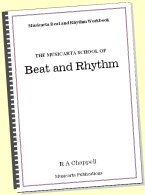
- Volume 1 -

12-BAR PIANO
STYLES WORKBOOK
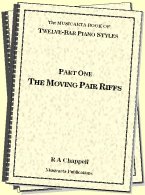
MUSICARTA MODES
WORKBOOK
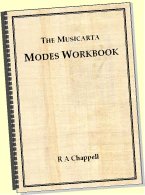
PIANO STYLE
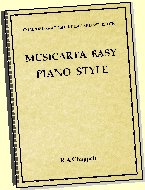
CANON PROJECT
video course
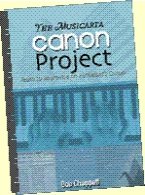
VARIATIONS
video course
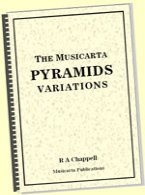
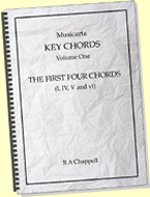
- Piano Solo -
video course
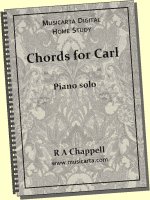
- Piano Solo -


YouTube playlists





 THE LOGO
THE LOGO
